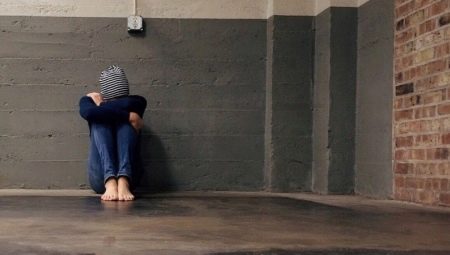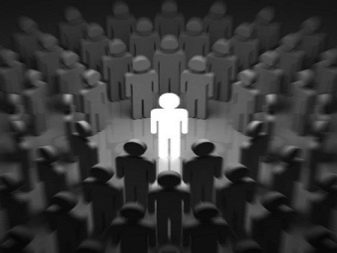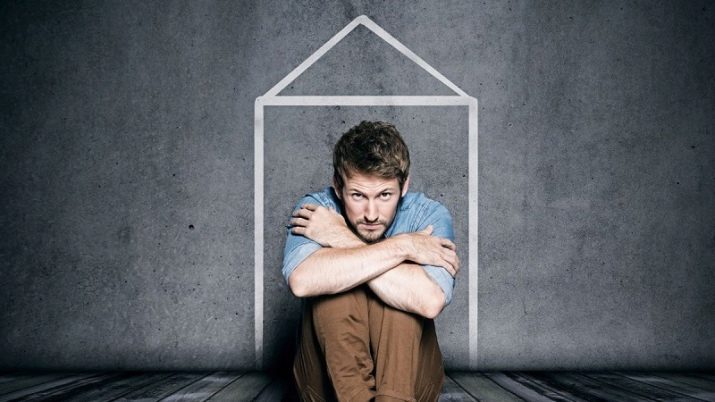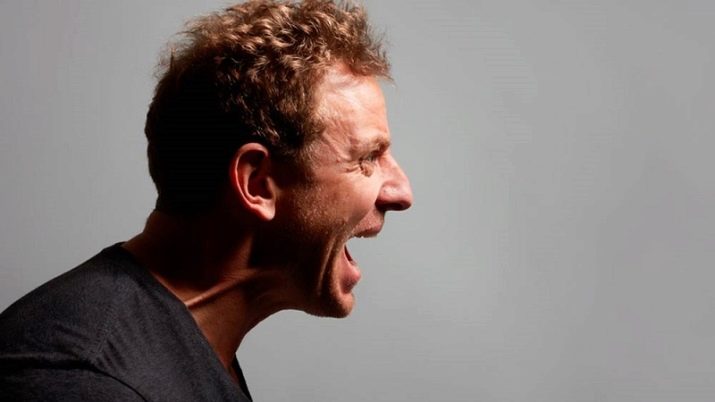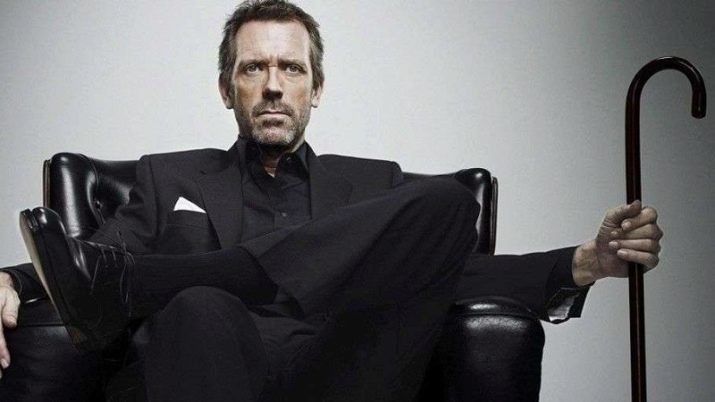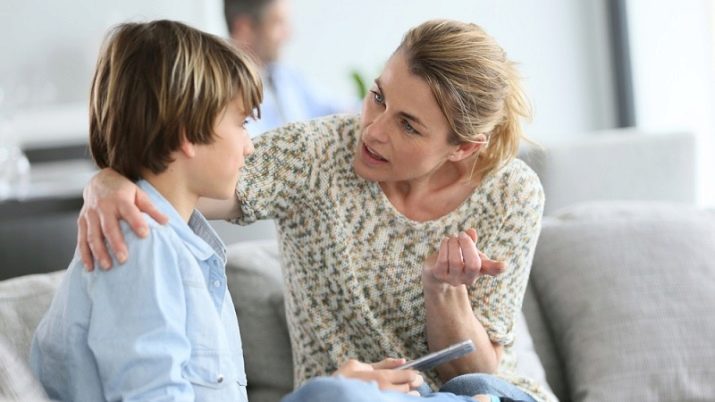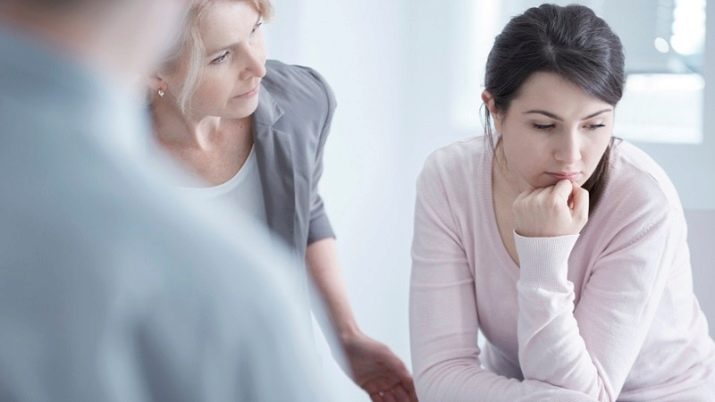The concept of "social phobia" has firmly entered our daily life in recent years. And many of us often use it in speech, not quite knowing exactly what it is and how this concept differs from introverts and sociopaths.
Many people who are not too fond of big companies and prefer to spend time alone, in all seriousness, consider themselves to be social phobias, even not knowing how wrong they are.
What it is?
Sociophobia is the fear of society, the fear of society. The name comes from the Latin word "socius" (common) and the ancient Greek "φ? Βος", which means "fear", "fear". Sociophobia is a type of anxiety personality disorder that manifests itself in an inexplicable and unexplained fear of doing something in society. - To speak to the public, to perform some actions under the watchful eye of others. Sometimes fear even arises before strangers who do not care about a person, for example, before passers-by on the street. A social phobia can be afraid of real observation from outside, as well as of fictional circumstances (it seems to a person that everyone on the street or in a shopping center is watching him).
Most social phobes are well aware of their problem, they are aware that fear has no reason, but cannot cope with it. Some are only afraid of certain situations (for example, the need to speak to an audience), while others are afraid of a wide range of situations related to society.
I really want to say that social phobes are not born, but this, alas, is not so. Up to half of all people with this problem have genetic prerequisites and have signs of social phobia in childhood, usually up to 11 years.
Most social phobias are aware of themselves as such until the age of 20. The rest - later.
In most cases, the fear of society is not the only problem, because appearing relatively early, social phobia entails other personality disorders, as well as mental disorders. Often, social phobia become drug addicts and latent alcoholics, addicted to computer games, fall into clinical depression. In the world medical literature, the phenomenon has another name - “illness of missed opportunities”, later you will understand why.
It is difficult for social phobia to realize itself in a profession, creativity, to build strong and trusting relationships with people. They are constantly experiencing the strongest anxiety when it becomes necessary to leave their “shell” and contact with the outside world, or rather, one of its components - other people like themselves.
Social phobia refers to persistent disorders, it is repeated many times. And among the great many phobias known to mankind, this is one of the most common. In different situations, individual manifestations of the fear of society are found in about 5-16% of people, but in a clinical form, fear of similar people spills only in 1-3%. There are no gender differences - both men and women are equally affected by this fear. In severe form, this form of social phobia leads to disability.
Mental illness or not?
Social phobia can be called a mental illness only with a great stretch; more often, experts refer it to anxiety-type mental disorders. But this does not reduce the need for treatment. Quite often, the problem surrounding social phobia is not taken seriously.and the refusal of a person to go shopping or talk to a neighbor who flooded the apartment the day before is perceived as an excuse, a manifestation of laziness. Psychologists and psychiatrists are unanimous in this matter: social phobia is not a pretense, not a whim, but a real problem, a personality disorder.
Like neurosis, social phobia needs to be diagnosed and treated, although no one can guarantee complete deliverance. Like all other mental disorders of anxiety, a social phobia tends to return when a person suddenly finds himself in a traumatic emotional or psychological situation. But the correction allows us to live with better quality and even achieve considerable success in a certain narrow specialization.
It is hard to imagine, but the famous Hollywood comedian Jim Carrey in his teens suffered from social phobia and received treatment from a psychotherapist. Actress Kim Besinger and Robert Patinsson have dealt with a similar problem in puberty. The great scientist Lev Landau could not get rid of social phobia, which did not prevent him from achieving the highest results in physics and becoming the Nobel Prize winner. According to historians, the writers Nikolai Gogol and Hans Christian Andersen suffered from social phobia.
Austrian writer and poet Elfrieda Jelinek was awarded the Nobel Prize in Literature in 2004. But she never received it, because she could not cope with the horror of the upcoming ceremony and the need to leave the house.
The most famous social phobia of recent years is the mathematician Grigori Perelman. He is satisfied with his St. Petersburg "Khrushchev", he feels safe in her, and therefore categorically refuses offers to take part in international conferences. He was awarded a prize of one million dollars for achievements in the field of exact sciences, but the man did not come to Paris for it. No one has ever succeeded in interviewing a great mathematician — he runs away as soon as he envies a journalist or someone who is obviously heading towards him.
In other words, social phobes cannot be considered stupid, their mind and consciousness do not suffer from them. With the phrase “mental illness, disorder,” many people imagine a deranged person who has difficulty understanding who he is, what he is and why. This is not about social phobia. They clearly see their purpose, they are often very talented, possess exceptional abilities, but they can be revealed only when they are ignored.when their lives are hidden from prying eyes.
Do not confuse social phobia and introverts. Introverts are a good quarter of the world's population. These are healthy people who are completely self-sufficient, they are not bored alone with themselves, they are immersed in themselves and their business and do not need extensive social contacts, they are quite enough favorite book, distant work, a warm cat near by in your favorite chair. But if circumstances require, the introvert easily, albeit reluctantly, leaves his comfort zone, without contact with people, communicates, establishes social connections. Another question is that he is waiting in the shower, so that everyone will be finally left alone so that he can go back to his “sink”.
Sotsiofobi not able to leave the comfort zone because of the strongest panic fear, they are sure that there, outside of it, they are waiting for something terrible, for example, humiliation, ridicule, failure, disaster.
If you look at a social phobia from a medical point of view, as psychiatrists, psychotherapists and psychosomatics do, then the mechanisms of such irrational fear will become clear.At the end of the last century, neurophysiologists from Italy discovered “mirror cells” - special groups of neurons that are responsible, as it is not difficult to understand from the name, for imitation. This is the basis of the human ability to empathize with others, to sympathize, that is, is the basis of empathy. Without empathy, a person is not able to fully interact with his own kind, to build trusting relationships with other members of society.
Any anomalies, paradoxes and disturbances in the work of mirror cells cause impaired empathy. A person is isolated - he cannot exchange with other emotions, and then he realizes that he cannot exchange information either. Even a simple conversation about the fact that “today is great weather” is, first of all, not only an exchange of words, but also an exchange of emotions. One interlocutor sends to the other positive emotions of admiration (even if not the most sincere) on a sunny morning, and the other either supports them, accepts and empathizes, or has a different point of view, in which case he also accepts the interlocutor's emotions, but he has a different response. In social phobia is not so. Mirror neurons do not provide imitation, do not cause "reception and transmission" of emotional messages.
If someone decides to laugh at a healthy person, make fun, with a high degree of probability, those parts of the brain that are responsible for aggression, anger, and ancient zones that are responsible for protecting their territory from outside threats are activated. In a social phobia, the brain works differently: in response to ridicule or taunts from another, brain areas immediately trigger, which are responsible for fear and anxiety, and often the center of pain is activated, which causes real physical pain.
The immediate release of rabid doses of adrenaline and cortisol makes a person run, hide, and avoid social contact in the future.
Differences from sociopathy
Thanks to the popular TV series like “Doctor House”, “Sherlock” and others, people began to widely apply another concept - “sociopath”. At the same time, in the overwhelming majority we do not imagine the difference between social phobes and sociopaths, believing that these are just different sides of the same coin.
Sociopathy is a completely different diagnosis. If the basis of social phobia lies fear, then in sociopathy - rather their absence. A sociopath doesn’t care a damn about society, he will no doubt go over his head to achieve his goal, he doesn’t care about social norms and rules, he is capable of impulsive actions "in spite of others." They are aggressive towards their own kind, but charming like no one. That is why they successfully manage to find admirers, admirers, and also invariably cripple the lives of all to whom they approach.
Sociopaths do not care about your problems - he does not know how to empathize in principle (the mirror neurons suffer here, but a little differently). He can portray that he is interested in your problems, but only if he himself needs you to achieve his goals. If they are not needed, he will not make efforts on himself and depict living human participation.
Guilt for sociopaths unknown. If they even did a lot of ugly and even frankly mean, they will always find a million excuses for their actions, putting all the responsibility on others (“Yes, I beat the seller in the store, but he himself is guilty because he looked at me brazenly, the remark was made , breathing is not so ").
All that is bad in their lives, they invariably consider the machinations and vile plans of others, they have everything around them, but they are not. This is a form of hatred of the world.
To make the difference more understandable, it’s worth talking about the most famous sociopaths in the world. These include Adolf Hitler, one of the most famous maniacs on a global scale - Andrei Chikatilo, the most famous children-murderers John Venables and Robert Thompson, who were sentenced to life imprisonment as early as nine years old.
Cruelty is peculiar to sociopaths in one degree or another almost always, as well as pathological lies, even in trifles, as well as sharp changes in mood. But do not think that you easily recognize a sociopath in a crowd. It is much easier to calculate a social phobia - by its fear and strange behavior. With a sociopath it is more difficult - as a rule, it is very intelligent, well-educated, intelligent and very charming personalities, egoists, but very persuasive - when they speak, they involuntarily believe.
The main difference is that a sociopath cannot exist without society. He needs to be pushed around by someone, mocked by someone, it is vitally necessary to dominate his own kind, to feel unique, who have almost divine powers - to control the lives and destinies of others. Social phobia without society feels much better.
Both social phobia and sociopathy are mental disorders. In both cases, the person should receive qualified treatment.
Kinds
According to the severity of manifestations there are several types of social phobia. When expressed forms of violation manifest uncontrolled panic attacks, and with a moderate course of violation, a person has internal resources in order to assess their feelings more or less sensibly and even cope with some manifestations of fear, although this is very, very difficult.
Anxiety is almost always peculiar to social phobias. But some nuances of perception of reality allow us to distinguish two groups of social phobia:
- delineated form - fear appears only in certain situations of the same type, for example, if you need to speak with a cashier in a supermarket or when you speak to an audience, have a job interview, pass an oral exam;
- generalized form - panic and fear appear in a huge number of very different situations created by society.
The types of social phobia are divided conditionally, since the signs and symptoms in both are practically the same.
There are phobias that manifest temporarily, but may worsen in the future, and there are long-lasting and persistent types of violation. And one social phobia is only afraid of reading poetry in front of the class, and the other will refuse to leave the house altogether. In one, fears tend to subside, while in others they are permanent, daily.
Causes
Why social phobia is developing, science is not known for certain. Researchers who at various times tried to investigate the essence of this phenomenon came to about the same conclusions - there is a certain hereditary predisposition. But the specific gene that could be “assigned” responsible for this mental disorder has not yet been identified. Psychiatrists have noticed that family members in which there is someone who is sick of social phobia are 70% more likely to experience the same problem. And here teachers and psychologists made their contribution, suggesting to look for the cause not only in the paradoxes of nucleotides and the genome, but also in education. It is absolutely precisely proved that a parent with a social phobia or other anxiety disorder conveys his model of world perception to a child.
A study was conducted involving twins who were adopted by different families. Surprisingly, if one of the twins fell ill with social phobia, similar problems were soon found in the second. Also, shy and anxious foster parents gradually formed similar qualities and anxiety disorders in foster children (studies were conducted in 1985 and 1994 by Bruch and Heimberg and Daniels and Plomin).
In a child and adolescent with established social phobia, it is usually, as psychiatric practice shows, authoritarian, demanding parentswho are emotionally removed from him. There is another extreme - unnecessarily taking care of the child mom and dad.In both cases, the lack of emotional intimacy and the lack of basic security is the starting mechanism for triggering the disease. The longer a child lives in fear of punishment, disapproval from adults, the more dangerous the world begins to appear to him. Excessively caring parents lead the child to the same denominator by other actions - they take care of him too much, try to protect him from the world, and because of this, the child has a clear installation for the future - the world is very dangerous, terrible, nightmarish, and cannot survive.
If in the first case, the parents by and large do not care what the child feels, in the second - the very opposite. Mom will come up with a lot of reasons why you can not talk to strangers, you can not go out without a hat, you can not be late home from a walk, you can not iron cats on the street. As a result, imaginary and real dangers are mixed together for the child and become one black, threatening mass of evil, from which you can escape only in one way - by hiding away.
But these are prerequisites. As for provoking reasons, it should be noted that in most cases the disease started in a child after he entered into a tough or even cruel confrontation, conflict with others, became a victim of public ridicule (both peers and adults). Most adult social phobes claim that they were outcasts in the collective as a child.they laughed at them - because of their appearance, the financial situation of their parents and for other reasons. In adults, social phobia can develop after a long stay in similar situations.
Another interesting study conducted by experts from the UK showed that in newborn babies, such features of the nervous system as behavioral inhibition can be identified. This means that such children are more focused on themselves than on the perception of the world around them. About 10–14% of people have such a temperament from birth, and it is among them that later there are those who fall ill with sociopathy (this does not happen to everyone).
Experience has a large role in the occurrence of a violation, not only personal, when the person himself was humiliated and offended, but also someone else’s, when the sick person became only a witness to someone else’s public humiliation or harassment. Transfer of this experience to yourself and provoked the development of the disease.
Signs of
There are several groups of symptoms that are characteristic of true social phobias. They are divided into:
- cognitive;
- behavioral;
- physiological.
Cognitive symptoms: a person experiences a real horror from one perspective, that someone or someone will evaluate him or what he does. They are extremely focused on themselves, monitor their appearance, they constantly monitor their own words and behavior. They have too high demands on themselves. They are trying with all their might to make a good impression, but at the same time they don’t doubt one iota that they will never succeed in this under any circumstances.
They are on their toes, scrolling in their heads hundreds of times possible scenarios of events, dialogues, analyze and understand “on cogs”, what and where they did wrong. Thoughts are obsessive, it is almost impossible to get rid of them, switch to something else.
Representations of the classical social phobia about themselves are not distinguished by adequacy: they see themselves worse than they really are. Sotsiofoby longer and more detail remember the bad, not good, and this is one of the striking differences from a person with a healthy psyche (in a healthy person, bad memories are quickly forgotten, while good ones can be remembered for decades in detail).
Behavioral symptoms are what others can notice, because only the social phobia itself knows about cognitive. To say that such a person is shy is somewhat erroneous. Social phobia is different from shyness peculiar to many children and adolescents, because with shyness in general, a person’s life does not suffer, which cannot be said about social phobia. Sociophobe stubbornly avoids contact, he most zealously refrains from communicating in small or small groups. Going on a date for him is torture. A true social phobia does not talk to strangers, even if they turn to it, but at the same time it is not aggressive, it simply accelerates the step and leaves the answer in the literal sense of the word. If you press it against the wall, you can see that the social phobia never looks the other person in the eye.
The physiological symptoms of social phobia are very similar to those of any anxiety personality disorder: these include excessive sweating, rapid tears, nausea in an alarming situation, difficulty breathing, trembling hands and feet, and a change in heart rate. Often, patients have a disturbed gait (they also constantly control themselves, and therefore monitor their steps as if from the outside). The gait may be different depending on whether one person or a group of people passes by.
Often, a social phobia reddens his face - evenly or in spots when he is worried, and he himself notices all these symptoms behind him, and therefore he is even more nervous, realizing that others also see this.
Most social phobians are afraid to eat, write and read in the presence of others, to go to public toilets.
As already mentioned, social phobia rarely “walks” by itself. Statistics show that every fifth social phobia has problems with alcohol. 17% of social phobias additionally suffer from severe forms of depression, 33% of patients additionally experience panic disorders, and 23% of people with social phobia have recorded suicide attempts. In some cases, social phobia is “side by side” in one person with Asperger syndrome and autism, sometimes with bipolar personality disorder.
The first signs of the disease are usually found in adolescence, and at first they look insignificant, unobtrusive. And if you pay attention to this at this stage and provide timely assistance, there is a chance of complete cure. But the majority of the disorder still goes into chronic persistent form or progresses.
The most noticeable symptoms of social phobia are in people aged 30-45 years. Such patients carefully plan their day so as not to go to the toilets in a public place, not to eat in the presence of others. Many are forced to quit their jobs so as not to meet with colleagues and clients. For some, it can be difficult to even talk on the phone and Skype (although most social phobes are quite capable of telephone conversations).
There is a special test for social phobia. It consists of 24 questions-situations in the last week. If the situation described in the test occurred in the past 7 days, the person describes it, if there was none, he describes his possible behavior in such a situation. For each item, the level of anxiety in points is assessed. It is called the Leibovich test. It is available for free on many resources.
The Leibovich scale is considered informative, effective and reliable for determining the presence of social phobia.
Treatment
Do not set yourself diagnoses yourself. Only a doctor can recognize a person as a social phobia, who not only listens to complaints, but also receives data from special questionnaires. It is noteworthy that not always people with such a problem come to the reception directly to a psychiatrist or psychotherapist. Sometimes they turn to a normal district therapist or even to a cardiologist with complaints of palpitations, dizziness. An experienced doctor of any profile can quickly distinguish somatic pathologies from anxiety disorder. In this case, he will refer the patient to the right address.
Treat social phobia taken on an outpatient basis. If a person with a fear of society is placed in an unfamiliar hospital environment with other patients and a large team of unfamiliar health workers, you can only worsen his condition. For treatment, cognitive-behavioral therapy is used, within which the specialist helps the patient to find his erroneous attitudes and thoughts and with the help of special exercises to eliminate or reduce them. Then the person begins to gradually and carefully immerse themselves in situations in which he had previously experienced horror. This part of the treatment is carried out in groups in the form of role-playing games, trainings.
With concomitant depression, a similar treatment is carried out simultaneously with taking medication drugs - antidepressants or tranquilizers. Tranquilizers are needed to stabilize the mental state at the moment of fear. Such strong drugs try to prescribe courses for a maximum of 3-4 weeks. Antidepressants help to normalize the appetite, mood, improve sleep. They can be taken by courses of 4 months or more at the discretion of the doctor.
It should be noted that many social phobes, which seem to be even ready to be treated, refuse to be assisted by a psychotherapist and insist only on prescribing medications for them (that's right - they can be taken without leaving home and without need to communicate).
It should be warned that experts are not too flattering about the medical treatment of social phobia. Both antidepressants and tranquilizers, as well as benzodiazepines, which are recommended for severe forms of the disorder, only eliminate the symptoms, but in no way cure the root cause. Without a psychotherapeutic course, the pills will help only for a time limited by the time they are taken. The course will end and fears will return. The stronger the drug, the higher the probability of a relapse of the disease after the end of its reception.
Hypnosis, relaxation techniques and physiotherapy are widely used in treatment. But no medicine and doctors will help to get rid of the problem, if a person does not have motivation. Therefore, only with one's own desire to overcome the fear of society, the forecasts are assessed as favorable. It is difficult to say how long the struggle will go: some manage to overcome their phobia in a few months, others have to continue treatment for several years. This is individual and depends on the person, on his desire to cope with the problem and on the form and type of mental disorder.
Cases of social phobia are considered unfavorable in medicine, when a person turns late, after many years of fear. For such a long period of time, a phobia causes severe social maladjustment and, as a rule, is already combined with certain accompanying mental diagnoses, with alcoholism, and drug addiction.
The question of how to treat social phobia independently is not very correct. It does not occur to you to remove your appendicitis at home or to reset an open fracture to yourself. Mental illness is not psychological instability. Here the advice of psychologists urgently fall in love with the neighbor and appreciate every passing day does not work. Mental disorder requires qualified correction after the doctor and only the doctor can determine all the circumstances and the severity of the violation.
The task of relatives and friends, friends and comrades of the social phobia is not in the home-grown motivation with the requirements “to stop pulling rubber”, “to pull myself together” and “to do it right now”. He can not pull himself together, even if I would be happy to do it. The most correct help is to convince a person to see a psychiatrist or psychotherapist. This will be the first step to healing. During long-term therapy, the social phobia also needs support and approval.
